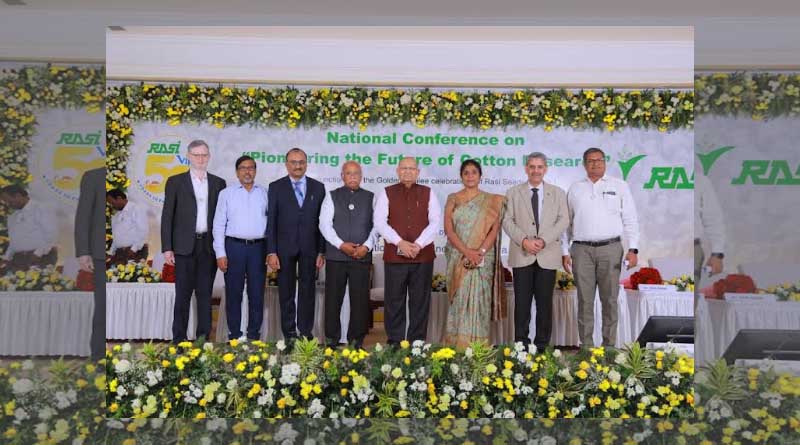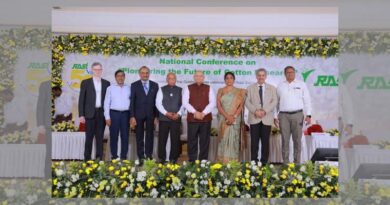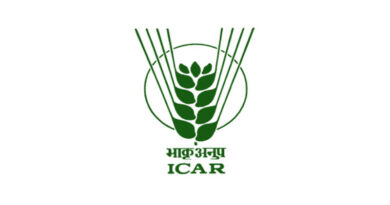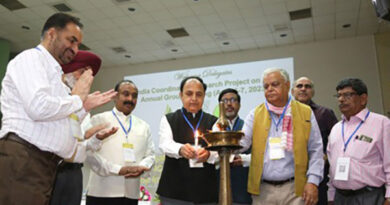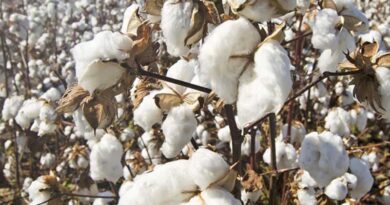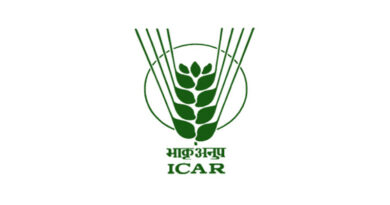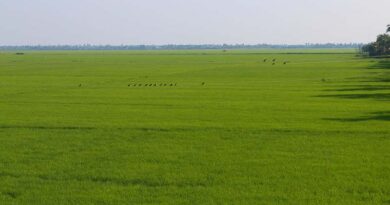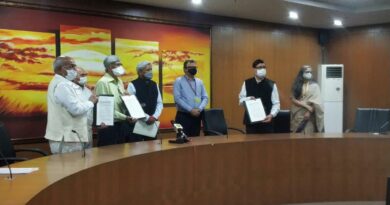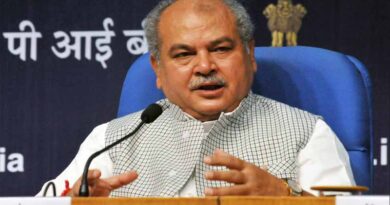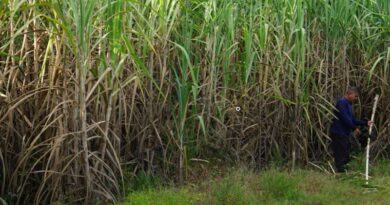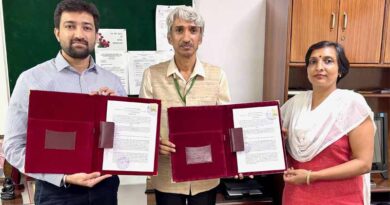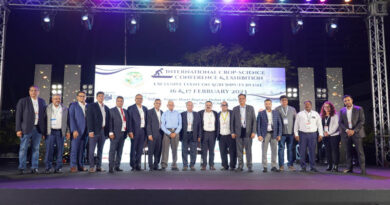India has world’s highest cotton acreage but 44th in productivity: National Conference on Pioneering the Future of Cotton Research
26 December 2023, New Delhi: To bring back self-sufficiency in cotton production to meet growing demand, India needs to focus on cutting-edge R&D to enhance productivity and farmers’ incomes, echoed India’s top agricultural scientists and experts at a national conference on Pioneering the Future of Cotton Research here on Sunday.
Rasi Seeds organized a national conference in collaboration with the Federation of Seed Industry of India (FSII), New Delhi. About 150 top researchers and scientists working on cotton from the Indian Council of Agricultural Research (ICAR), State Agricultural Universities (SAUs), and noted experts from across the nation, emphasized the need to step up our below-average productivity at 447 kg/ha, despite being a global leader in both acreage (13.61 mn ha) and production (34.3 mn bales)
Despite having the world’s largest cotton acreage, India’s global rank in productivity is languishing at 44th place. Factors such as shifting weather patterns, increasing pest & disease challenges, and the slow adoption of advanced technologies have hindered growth, resulting in a plateau in productivity over the last 5-7 years.
“This national conference is aimed at reiterating the significant role and urgent need for cutting-edge R&D in the cotton crop in India, exploring holistic solutions to increase cotton productivity. Specific focus on enabling technological and policy interventions is the need of the hour to ensure India’s cotton sector remains sustainable, profitable, and globally competitive,” said Dr. M. Ramasami, Chairman of Rasi Seeds, a veteran with over 50 years of experience in the seed sector. Having been at the helm of the cotton seed revolution which began in 1992, Rasi Seeds has gained the trust of millions of farmers with its high-performing hybrid cotton seeds cultivated on 75 lakh acres by about 40 lakh farmers.
In its continued endeavor to drive to the cotton sector, Rasi Seeds also signed several Memorandum of Understanding (MoUs) with the Central Institute of Cotton Research (CICR), ICAR, Tamil Nadu Agricultural University (TNAU), and Annamalai University. These collaborations aim to advance farmers’ training programs including cotton advisories through radio broadcasting to bring awareness on various issues such as management of the Pink Bollworm menace, drive research projects on cotton crop improvement, industry-academia joint initiatives, and field-level training on plant breeding aspects for research students, reflecting a collective commitment to addressing critical issues in cotton research.
Dr. R S Paroda, Founder Chairman, Trust for Advancement of Agricultural Sciences (TAAS), lauded the significance of such collaborations, stating, “Partnerships in the field of cotton research are not merely advantageous but rather pivotal for the sustainable growth of India’s cotton industry at this juncture. These proactive collaborative efforts act as a shield, enhancing resilience against the multifaceted challenges that the cotton sector faces. By fostering innovation and sharing knowledge, we collectively contribute to the prosperity of the cotton farming community, ensuring a robust and sustainable future for the industry.”
Dr. D K Yadava, ADG (Seeds), ICAR, said, “This gathering united the most brilliant minds within the cotton sector. Considering the distinctive hurdles we encounter, collaboration among all stakeholders is crucial for charting a meaningful path ahead. India’s potential is vast, demanding concerted efforts to tackle the low-productivity challenge.”
Dr. Y G Prasad, Director, CICR, Nagpur said, “Public and private partnership is the need of the hour to address the biotic and abiotic factors affecting the cotton crops currently. Further, R&D in cotton seeds needs to be aligned with the medium and long-term needs of the Indian textiles sector.”
Ajai Rana, Chairman, Federation of Seed Industry of India (FSII) echoed the real urgency and the importance to be given to India’s dynamic seed sector particularly, from the policy and regulatory aspects. More importantly, the nation needs to adopt a science-based and unbiased approach towards innovative technologies in seeds and biotechnology.
Ram Kaundinya – DG, Federation of Seed Industry of India (FSII) emphasized Science and research have been an enriching force in agriculture, and continued investment in it is pivotal. It’s essential for science to guide us through challenges like the ones affecting cotton crop yields.
Dr. Geetha Lakshmi, VC, TNAU, and Dr. RM Kathiresan, VC, Annamalai University, also graced the occasion and shared their perspectives on enhancing industry-institute interactions.
With approximately 150 delegates representing diverse stakeholders from government bodies, research institutions, and the seed industry, the conference provided a platform to discuss the imminent role of Public-Private Partnerships (PPPs) in enhancing cotton productivity.
Also Read: Garuda Aerospace Donates 1 crores worth of Free Kisan Drones
(For Latest Agriculture News & Updates, follow Krishak Jagat on Google News)

